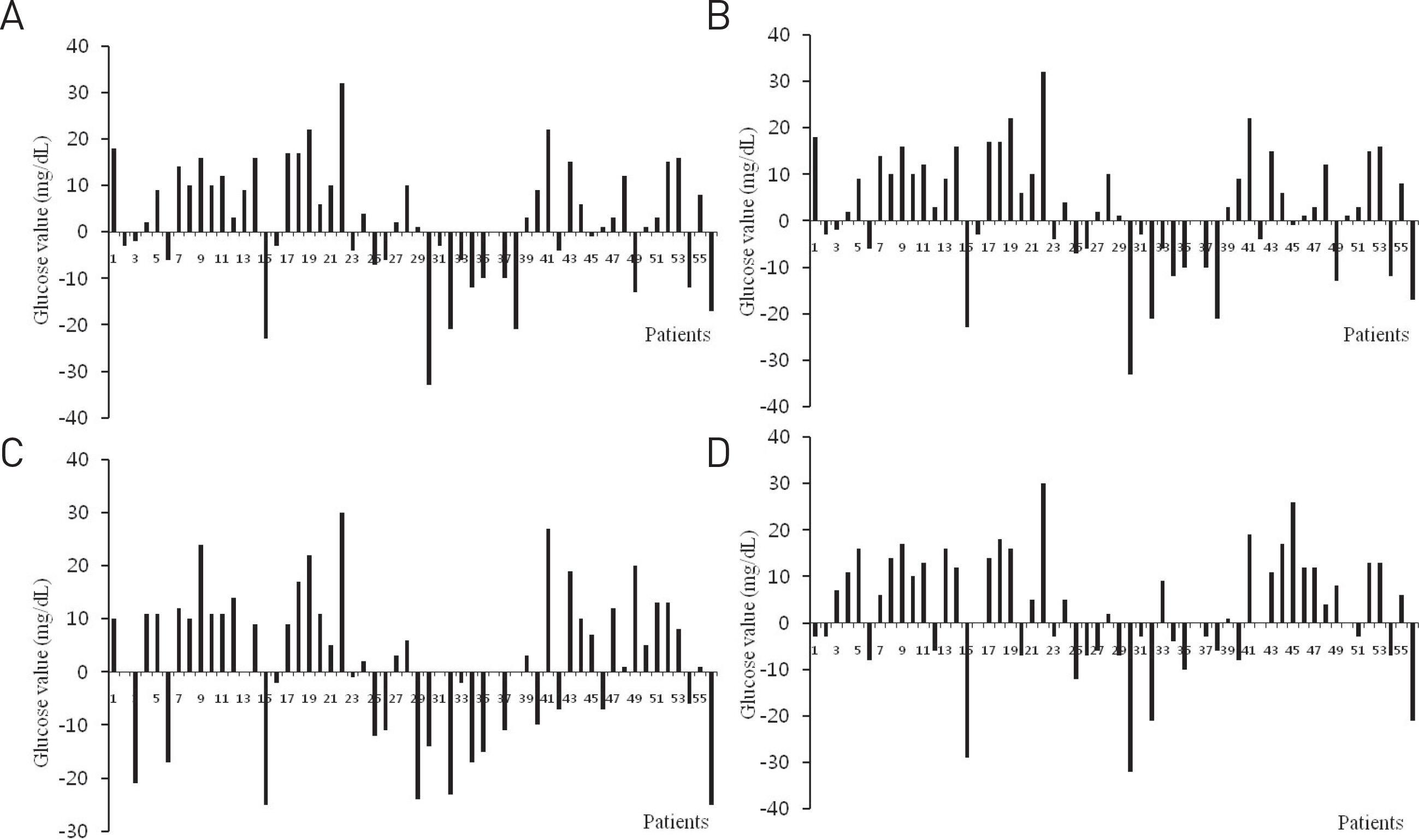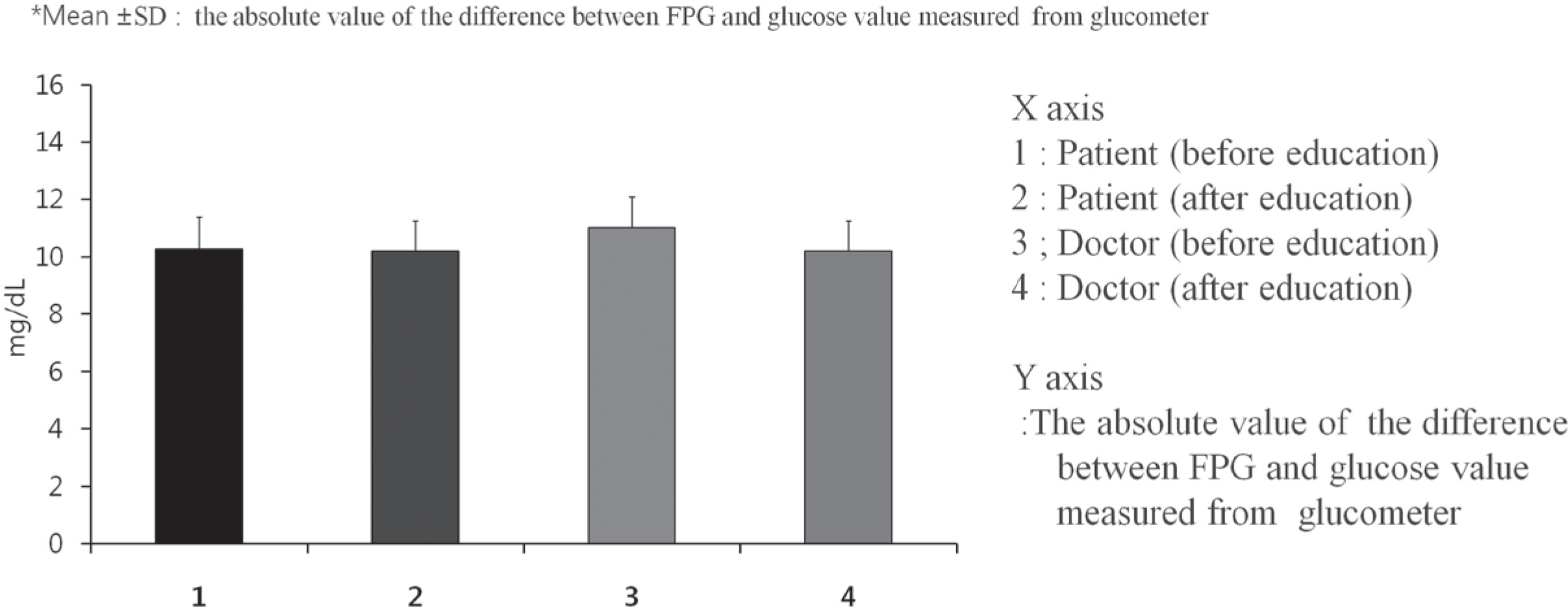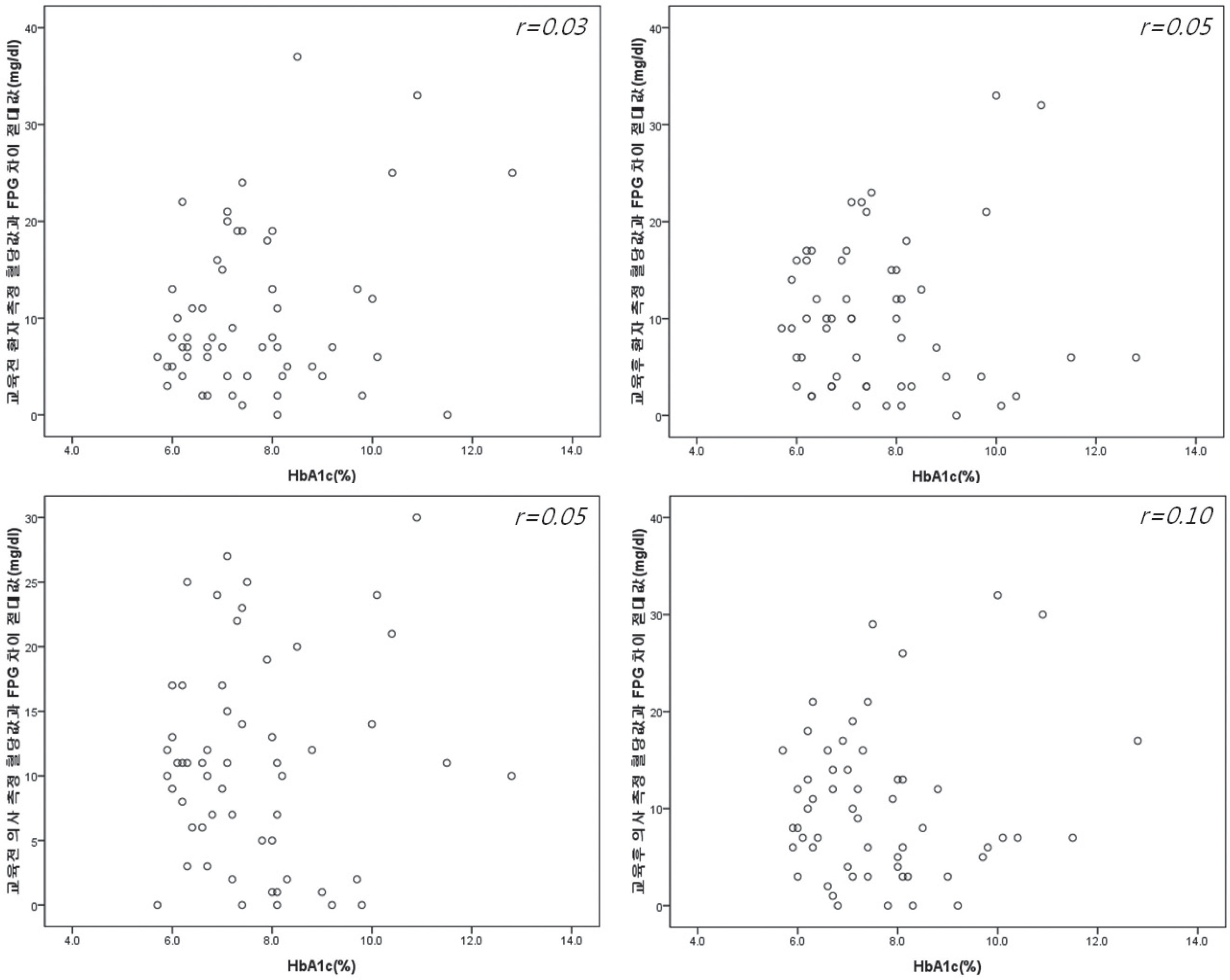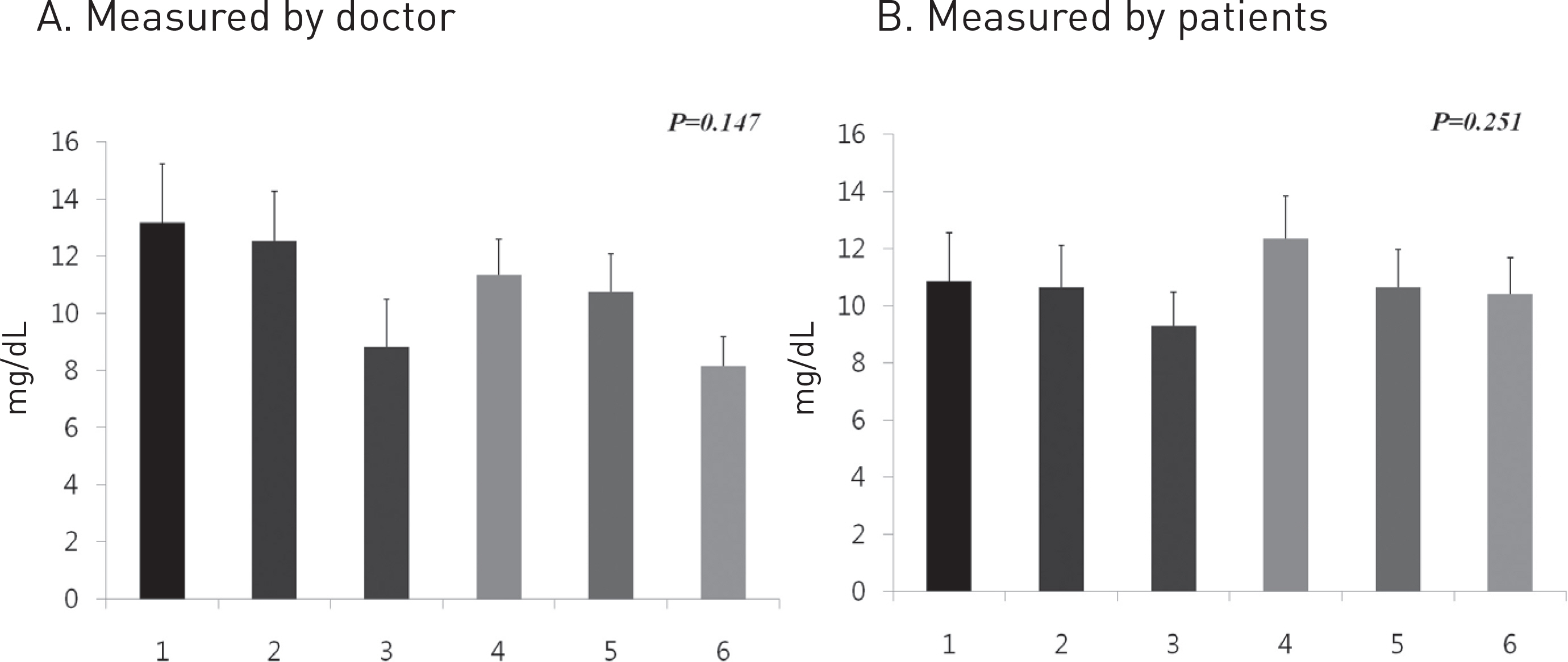J Korean Diabetes.
2011 Jun;12(2):113-121. 10.4093/jkd.2011.12.2.113.
The Education Effect of Glucometer Use on the Glucose Levels and the Glucose Value Comparison among Diverse Glucometers
- Affiliations
-
- 1Division of Endocrinology and Metabolism, Department of Internal Medicine, Research Institute of Clinical Medicine, Chonbuk National University Medical School, Jeonju, Korea. pts@jbnu.ac.kr
- KMID: 2137333
- DOI: http://doi.org/10.4093/jkd.2011.12.2.113
Abstract
- Self-monitoring of blood glucose (SMBG) and point-of-care testing are widely used in the management of diabetic outpatients. However, SMBG records are sometimes inaccurate, and may differ from glucose values measured in the hospital. Therefore, the aim of our study was to evaluate the effects of patient education regarding glucometer use on blood glucose levels and to compare the glucose values obtained by six different types of glucometers currently used in Korea. Fifty-six diabetic patients participated in the present study. Each patient visited the hospital in a fasting state. Fasting plasma glucose (FPG) levels in capillary blood samples were measured by doctors and by the patients themselves before and after patient education sessions. Then, glucose levels were measured with each of the six glucometers by doctors and by the patients themselves. The differences between FPG and glucose values measured using glucometers were compared, and their relationships with HbA1c were also assessed. There were no significant differences between glucose levels measured by patients regardless of glucometer education. We obtained similar results for differences between glucose levels measured by patients and doctors. Patient HbA1c levels were not correlated with differences in measurements between glucometers and FPG. Measurements of glucose levels by the six different glucometers did not differ significantly. Our study indicates that education about SMBG, including glucometer handling, is important to increase SMBG accuracy, but that errors in SMBG records are trivial for glucometer users and that the different glucometers used in Korea demonstrate similar accuracy.
MeSH Terms
Figure
Cited by 2 articles
-
Self-monitoring Glucometers: How Accurate Are They?
Young Na
J Korean Diabetes. 2013;14(3):143-145. doi: 10.4093/jkd.2013.14.3.143.Self-Monitoring Blood Glucose Meter: Is Your Glucose Meter Accurate?
Seon Yeong Park
J Korean Diabetes. 2015;16(1):38-42. doi: 10.4093/jkd.2015.16.1.38.
Reference
-
1. Goldstein DE, Little RR, Lorenz RA, Malone JI, Nathan D, Peterson CM. Tests of glycemia in diabetes. Diabetes Care. 1995; 18:896–909.
Article2. Cohen M, Boyle E, Delaney C, Shaw J. A comparison of blood glucose meters in Australia. Diabetes Res Clin Pract. 2006; 71:113–8.
Article3. Gan D. International Diabetes Federation: Diabetes Atlas. 2nd ed.Brussels: IDF;2003. p. 17–71.4. Park IB, Baik SH. Epidemiologic characteristics of diabetes mellitus in Korea: current status of diabetic patients using Korean health insurance database. Korean Diabetes J. 2009; 33:357–62.
Article5. Lee SY, Lee NY, Kim JW. Evaluation of 6 glucose testing systems. Korean J Lab Med. 2003; 23:170–9.6. Bergenstal RM. Evaluating the accuracy of modern glucose meters. Insulin. 2008; 3:5–14.
Article7. Bergenstal R, Pearson J, Cembrowski GS, Bina D, Davidson J, List S. Identifying variables associated with inaccurate self-monitoring of blood glucose: proposed guidelines to improve accuracy. Diabetes Educ. 2000; 26:981–9.
Article8. Benjamin EM. Self-monitoring of blood glucose: the basics. Clinical diabetes. 2002; 20:45–7.
Article9. Sarol JN Jr, Nicodemus NA Jr, Tan KM, Grava MB. Self-monitoring of blood glucose as part of a multicomponent therapy among non-insulin requiring type 2 diabetes patients: a meta-analysis (1966-2004). Curr Med Res Opin. 2005; 21:173–84.10. Welschen LM, Bloemendal E, Nijpels G, Dekker JM, Heine RJ, Stalman WA, Bouter LM. Self-monitoring of blood glucose in patients with type 2 diabetes who are not using insulin: a systematic review. Diabetes Care. 2005; 28:1510–7.11. The International Organization for Standardization. In vitro diagnostic test systems-requirements for blood glucose monitoring systems for self-testing in managing diabetes mellitus. ISO/TC 212/SC. International Standard ISO 15197. Geneva: ISO;2003.12. An D, Chung HJ, Lee HW, Lee W, Chun S, Min WK. Analytical performance evaluation of glucose monitoring system following ISO15197. Korean J Lab Med. 2009; 29:423–9.
Article





